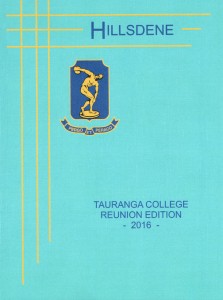Posts Tagged ‘Stanford University’
What I learned at Stanford
The New Zealand high school I went to, Tauranga College, recently celebrated its 70th anniversary and hosted a reunion for those who attended the college before 1957, the year it split into two single-sex schools. I was one of four alums invited to give a five-minute talk on some aspect of our lives. I was in prestigious company: an emeritus professor of chemistry, the manager of New Zealand’s cricket team during many of its World Series tours, and a researcher doing impressive work in health economics. I chose to talk about my 20 years as an administrative writer and editor at Stanford University, a relatively low-level job, but one in which I had considerable personal satisfaction.
Later that day, many women came up to me to tell me how much they appreciated my words. “I felt affirmed,” one woman said. Our generation was taught rather firmly that a woman’s role in life was to marry and take care of husband and children. Many of course took on paying jobs and volunteer work, but “women’s work” was not highly valued in that strongly patriarchal society.
Here’s the text of my talk:
What I learned at Stanford
I’m sure most of you have heard of Stanford University. The name might bring to mind words like Silicon Valley, medical breakthroughs, prestigious think tank. There’s another, less visible part of the story: the staff work that keeps the university going.
I’m still amazed at how I found myself there in 1979. I was easing back into the job market after being a home-maker and struggling freelance writer. At a neighborhood gathering, I learned that the Stanford administration had a crisis. The federal government was changing the rules for how to calculate the indirect costs for research contracts and grants. (For instance, how much of the university’s electricity cost can reasonably be charged against a particular contract.) When the finance department and the research department put together task forces to figure out how to implement the new rules, they discovered that the faculty doing the research had no idea what the accountants were talking about. They needed someone to translate accounting-ese into English. Could I do it? my neighbor, a Stanford professor, asked. At that time my accounting knowledge was zilch. But what I did have, as a journalist, was the ability to ask the dumb questions that would get me a highly technical story in everyday language. So I was taken on, and within a couple of weeks was ghost-writing memos for the Controller and the Dean of Research.
I stayed at Stanford for twenty years, working on projects related to administrative systems and policies, and support networks for department administrators. During that time, Stanford administration was going through a sometimes painful transition to the world of computers. Imagine if you will a dark basement in an old stone building. Rows of desks are filled with elderly women, most of whom have been there forever, processing Accounts Payable by hand. They’ve never touched a computer, and they’re terrified.
I was part of a group doing our best to help ease this transition. For instance, when I became editor of Stanford’s annual financial report, the entire $450 million of income and expenditures was typed up and tallied by hand. I brought in someone familiar with a computer spreadsheet program to reduce the manual labor. As editor of administrative policies, I headed up an Information Technology skunk works to fulfill a dream of making all the university’s policy and procedure documentation available online. (This was in the early 1990s, before the World Wide Web took off.) I also designed and implemented support programs to gently persuade computer-phobic department administrators to give up their paper copies and use the new system. These programs were the topic of papers that I presented at national conferences.
Sometimes I would ask myself: Does anyone really understand how much power I have? How is it that I, a relatively low level administrative analyst and editor, am dictating annual report deadlines to Stanford’s prestigious external auditors, or leaning on vice-presidents to update their policies, or even writing the policies for them?
The answer is that there are two kinds of power. One is hierarchical: you’re the boss, so you have the right to tell those under you what to do. The other kind of power is interpersonal: if people trust and respect you, they will willingly help you implement a common goal. I learned at Stanford that trust and respect are really all that matter.

